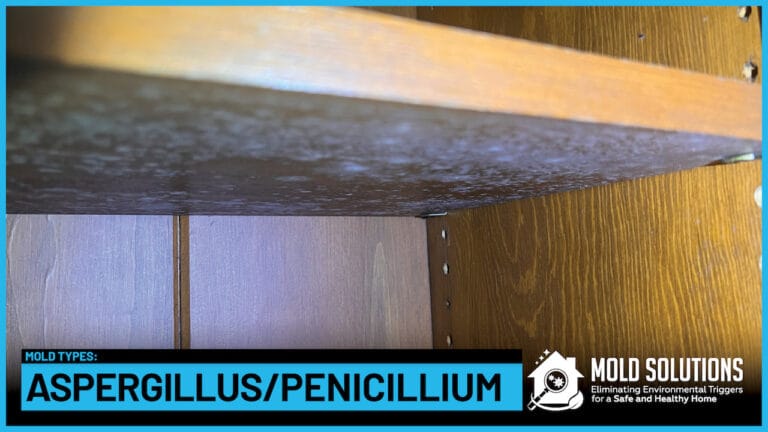Aspergillus
Aspergillus is a widespread mold genus commonly found in Florida homes, thriving in warm, humid environments and capable of growing on a wide range of household materials. While many species are relatively harmless, some can trigger allergies, respiratory issues, or even serious infections in people and pets with weakened immune systems.

Aspergillus is one of the most common molds found in Florida homes. It includes hundreds of species, some harmless and others capable of causing health problems. Because it thrives in warm, humid environments, it is especially common in Florida’s climate.
Aspergillus colonies can appear in a variety of colors, including green, yellow, black, or white, depending on the species. Under the microscope, it produces small, round spores that are typically 2–3 microns in diameter—small enough to be easily inhaled.
Aspergillus is often found indoors on damp building materials such as drywall, insulation, and wood. It can also grow on household dust, stored food, HVAC systems, and fabrics. In Florida homes, bathrooms, kitchens, and air conditioning ducts are common hotspots.
Aspergillus requires consistent moisture to thrive but does not need standing water. Even high humidity levels (above 60%) can be enough to support growth. Leaks, condensation, or poor ventilation often create the right conditions for it to spread.
People: Most healthy individuals experience no major issues from limited exposure. However, prolonged or high-level exposure can cause allergic reactions, asthma flare-ups, or sinus irritation. In people with weakened immune systems, certain species of Aspergillus can cause more serious infections, known as aspergillosis.
Pets:
Pets, particularly dogs and cats, can also be affected. Symptoms may include respiratory distress, coughing, or lethargy if they are exposed to high concentrations. While rare, infections can occur in pets with compromised immune systems.
- Keep indoor humidity below 50% with dehumidifiers or air conditioning.
- Repair leaks quickly and dry water-damaged materials within 24–48 hours.
- Clean and maintain HVAC systems regularly.
- Improve ventilation in bathrooms, kitchens, and laundry areas.
If you notice widespread mold growth, musty odors, or recurring respiratory symptoms in your household, it’s best to contact a licensed mold inspector or remediation professional. Aspergillus can spread quickly in hidden areas, making professional assessment important.

